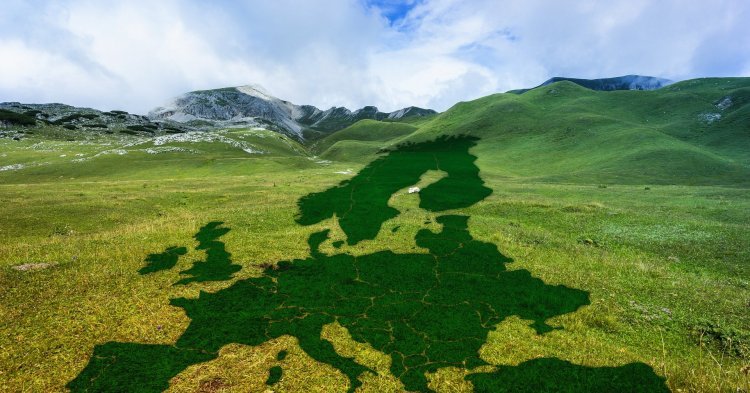The EU will no longer be held hostage by a string of incompetent British prime ministers and an indecisive parliament. Its agenda will no longer be consumed by discussions on the divorce settlement, the backstop, citizens’ rights or regulatory alignment. For better or for worse, this chapter in the history of the EU is reaching a conclusion. Brexit invokes the grief of an overwhelming loss, and yet, like losing a loved one to a cruel and painful illness, there is a tangible sense of relief that the ordeal is coming to an end.
The time has come to lay Brexit to rest. Now, finally, we can look inward, as well as outward. We must reassess ourselves, our neighbourhood, and our place in a world order that is shifting fundamentally and irreversibly. We have lost the U.K., but we must not lose ourselves. After any great trauma, whether personal or societal, there comes a time to reassess what we truly are, what fundamentally makes us us.
The genesis of the EU was the Schuman Declaration of 1950, conceived of a very simple notion: that after two devastating world wars, further aggression on this continent could be avoided by pooling sovereignty over the basic materials needed to wage war. This idea germinated, and in an act of great political creativity, the Treaty of Paris was signed and the European Coal and Steel Community – the foundation for all future European integration – was born.
European integration then, from its very beginning, has been about more than mere trade and economics. Even today, the EU is more than an internal market, with expansion as the only rational end. The EU is first and foremost a community: a family of nations whose people (though not always their governments) share in a certain set of liberal values. The EU was built as a political project, to ensure peace and to avert war. It has achieved this goal and has grown, despite seemingly insurmountable odds, into the most ambitious and successful experiment of political integration in human history.
A Union of 27 Member States progresses slowly, and every decision requires compromise. Differing economic and fiscal interests threaten to pit north against south, while geopolitical concerns separate east from west. Patience, compromise and solidarity are required from every Member State, with the knowledge that the machine only works when we work together. While compromise is paramount, we can never compromise our unity. Deeper integration is necessary, but the notion of a “two-speed Europe”, comprising a “core of Europe” and a “smaller club”, mooted by President Macron and others, offends our shared unity and solidarity; it insults the very essence and spirit of the European Union. We cannot tolerate a two-speed Europe, any more than we can tolerate two-tier citizenship.
Confronting the challenges of the future will require increased cooperation, solidarity and patience. In a world that is increasingly interconnected, threats to our security and prosperity are transnational. Climate-change, disease, cyber-security and nuclear proliferation can no longer be addressed by small European states acting alone. Regional and global institutions, offering forums for cooperation and collective action provide the only viable way to find solutions commensurate to our challenges.
Retreating into our tribes, seeking refuge in contorted versions of our history, yearning for a time long gone - offer us nothing. Instead we must look to the future, we must choose to engage and to cooperate. Despite all the inherent difficulties and frustrations, we must choose compromise and dialogue. In choosing Europe, we choose to fight some of the darker impulses of human history: conquest and subjugation, nativism and xenophobia. In working to build the future of Europe, we choose a more generous, empathetic and enlightened existence. We choose to take a leap of faith, relying on the “better angles of our nature”.
In the months and years ahead, as we prepare to open the next chapter in the European story, and confront difficult questions about reform, enlargement and democratic legitimacy, we would be wise to recall that which makes this community unique. The EU considers itself to be founded on the Article 2 TEU values of freedom, democracy, equality, the rule of law and respect for human rights. These values are shared by the Member States, and comprise “a society in which pluralism, non-discrimination, tolerance, justice, solidarity and equality between women and men prevail”. Respect for these values constitutes the very DNA of the European Union, representing the lessons of two world wars, and comprising the same objective of the Treaty of Paris in 1952 – ensuring peace in Europe. This is the European way of life; this is the essence of Europe.
As we look to the future, we must remember our past. We must take the time to pause, and to reflect upon what makes this community of nations unlike any other creature of political integration or international law ever to have existed. We must decide to stay true to what we really are – basically, fundamentally, nakedly. In doing so, we will find that even after the heartbreak of Brexit, we are still whole – we are still complete.


Follow the comments: |
|
